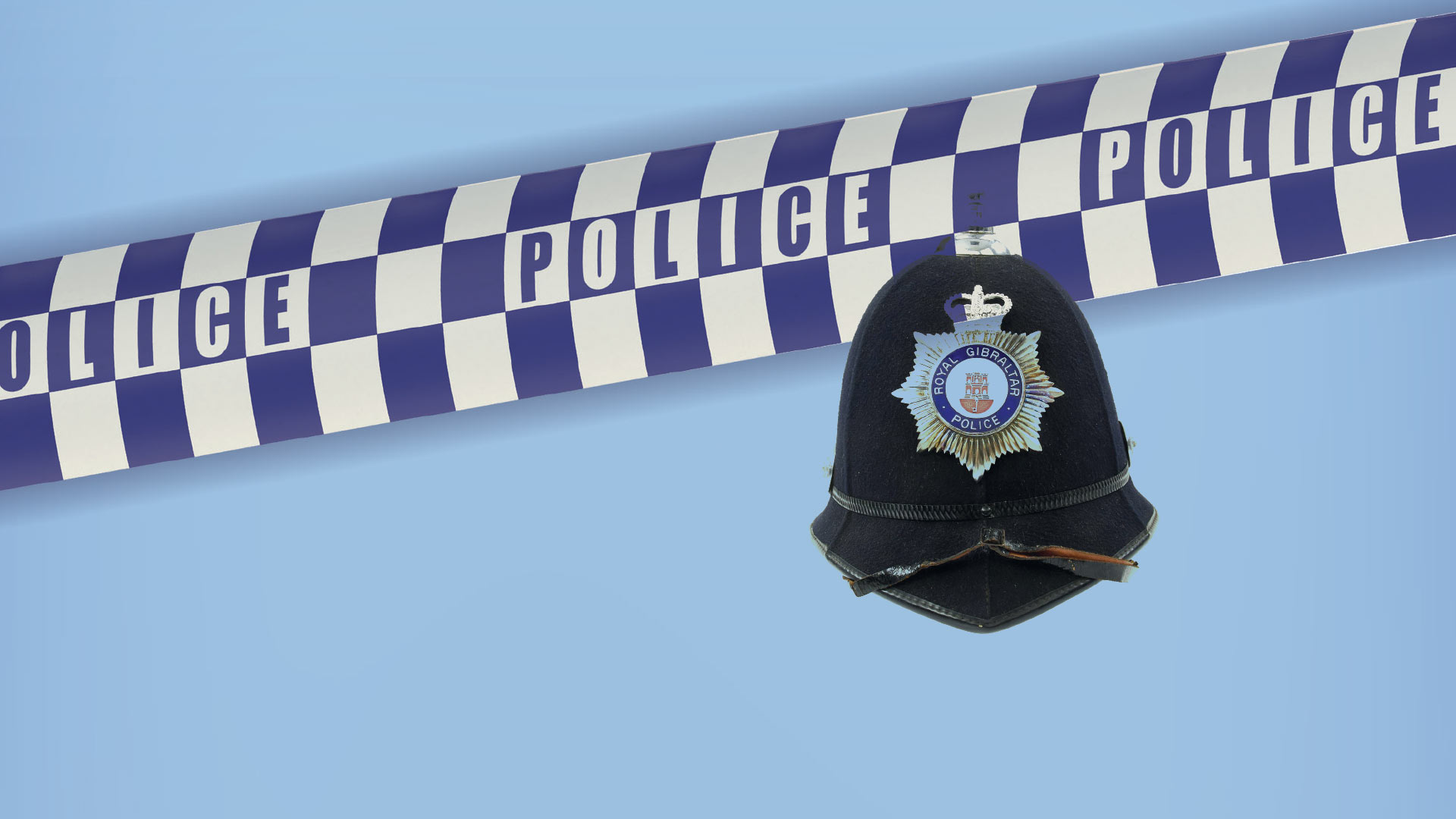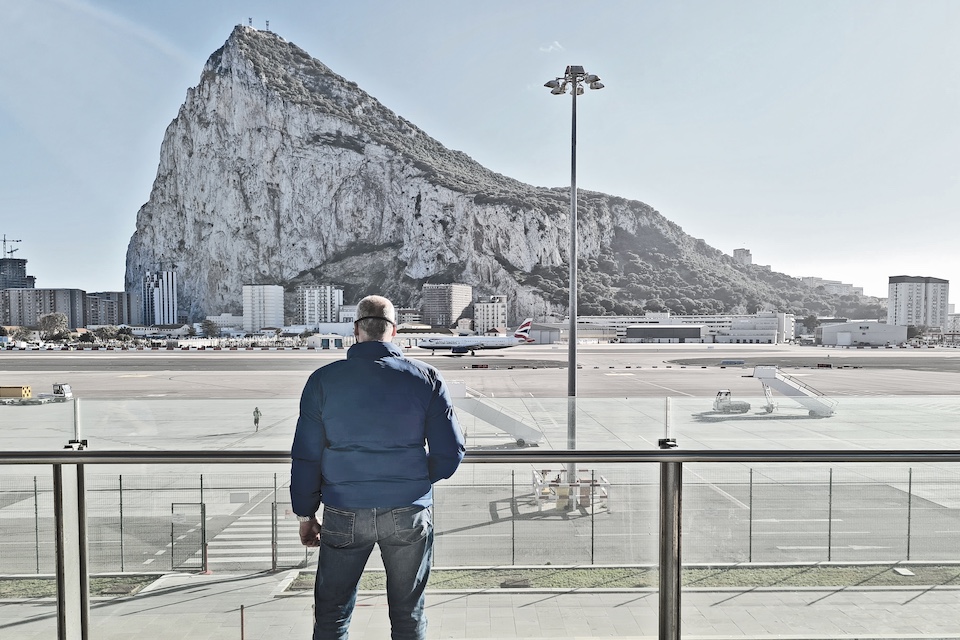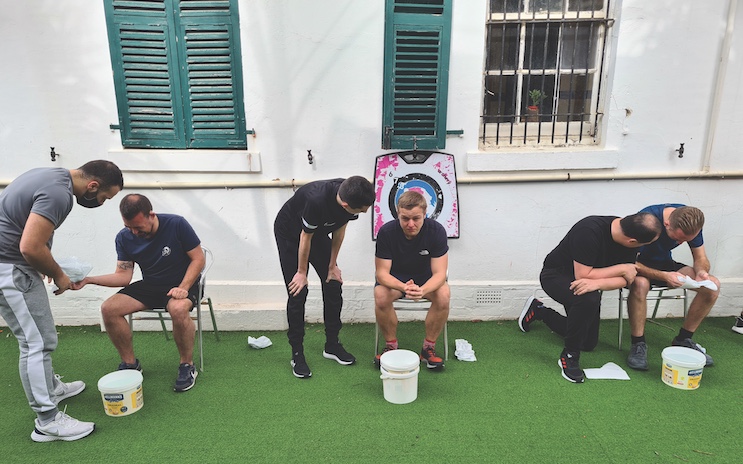Special Branch
“Our work has three main strands – Counter-Terrorism, Immigration issues and VIP personal protection,’ says Inspector Neil Zammitt who heads up the RGP’s Special Branch. ‘But absolutely everything that we do is linked to Gibraltar’s national security.’
Inspector Zammitt explains that Special Branch plays a key role in protecting Gibraltar from threats to its national security, especially those from terrorists and other extremists. It is responsible for acquiring and analysing intelligence through various methods, the monitoring of travellers at Gibraltar’s points of entry, surveying of critical national infrastructure and delivering protective security advice.
“Gibraltar is unusual in that it has a land frontier with another jurisdiction, a busy commercial port and an international airport,” says the Inspector. “And there are very few police forces anywhere else who have all those three to monitor.
“Within our remit of ‘Ports Policing’, we need to keep an eye on these three entry points into Gibraltar. Clearly, we cannot check every individual who arrives on the Rock but we do look out for certain patterns – someone who claims to be ‘a holiday maker’ but who perhaps flies in and out of Gibraltar suspiciously often. Or we may spot that someone makes regular visits to particular countries immediately prior to their visits to Gibraltar. We might need to have a chat with such people to ask for an explanation of their reasons for being on the Rock.”
“A large part of the job involves liaison, sometimes daily, with a wide variety of law-enforcement agencies. Within Gibraltar, we work closely with Border and Coastguards, HM Customs, Gibraltar Defence Police, the MOD’s Joint Provost and Security Unit and with the Government.
“In the UK we have close links with UK Border Force, the National Crime Agency, the Counter Terrorism Support Unit and the Centre for the Protection of National Infrastructure.
In Spain, we are in regular contact with Cuerpo Nacional de Policia and the Guardia Civil.” Clearly, the international exchange of information is a key part of the job.
Neil Zammitt also manages two particular projects in order to protect and support Gibraltar’s businesses and public sector with the aim of reducing the vulnerability to criminal and terrorist threats. The first is Project Citadel, an outreach programme which aims to raise security awareness and the promotion of community vigilance by encouraging the reporting of suspicious individuals and behaviours in order to thwart terrorist threats and networks.
The second is Project Servator which describes police activity that aims to disrupt a range of criminal activity, including terrorism, while providing a reassuring presence for the public. The approach relies on building a network of vigilance made up of business and community partners and the general public. Project Servator is different to normal policing as officers involved are specially trained to spot tell-tale signs that someone may be carrying out hostile reconnaissance.
Another area of Special Branch is that of VIP protection. When working, and sometimes even when he is off-duty, the Chief Minister is always accompanied by Special Branch’s specially-trained Close Protection Officers and, depending on circumstances, it is sometimes necessary for him to be accompanied by more than one officer. Visiting politicians and dignitaries may also require a similar level of protection.
Neil Zammitt feels that a time spent in Special Branch always looks good on an officer’s CV. “But it’s not just that we feel that it’s good for our careers. We get a lot of job satisfaction from being in this department. We know that we are being trusted to deal with some very sensitive information and it is this information which provides the top layer of security for Gibraltar.”
“Personally the biggest case in which I was involved during my time in Special Branch was Operation Iceberg in which, supported by the Policía Nacional, we dismantled an organised criminal group which was smuggling migrants from Morocco to Europe. In 2018/19, these migrants primarily arrived in Gibraltar by plane or ferry from Morocco. In Gibraltar they were picked up by members of the organised criminal group and driven to Spain, hidden in off-road vehicles with tinted windows. In Spain, the migrants were provided with temporary accommodation or bus tickets to travel to another part of Spain or to cross over to other EU Member States. This criminal operation had a presence in 18 Spanish provinces and five European countries but it was halted when house searches were carried out in Gibraltar and Spain resulting in the arrest of 47 people and the seizure of large amounts of cash.
And the downsides of the job? “Well, Special Branch never sleeps! We need to be available 24/7 and this can certainly have an impact on your family life. My phone is never switched off and it never leaves my side.”
It is reassuring to know that, in its small but dedicated Special Branch, the Royal Gibraltar Police has officers who are so totally committed to protecting our national security.
Next time you are passing through the airport you may be reassured to know that some of the people who seem to be waiting for family in Arrivals or having coffee in Departures are actually our Special Branch officers helping to keep our community safe.
Spray Endurance
New RGP recruits got to grips with the painful effects of Captor Spray during a recent training session.
As part of their week-long Personal Safety Training, the recruits were sprayed with the incapacitant spray to learn about its effects first hand.
All Response Team officers in the RGP carry the spray, which is used as a non- lethal defensive weapon against violent offenders or those resisting arrest.
The effects of the spray are an immediate loss of vision, short-term pain and extreme discomfort, symptoms that last between 15-30 minutes.
No permanent damage is caused and no medical treatment is needed.
Sergeant Paul Chiara, who organised the exercise, said: “There are two main reasons why we do this. Firstly, so officers understand the effects of Captor Spray and they can practice the relevant after care on persons that have been exposed to it.
“Even if someone has assaulted a police officer and has been sprayed, we have a duty of care to our suspects and we have to be able to control them if they have been incapacitated – as it is painful.
“The other reason is to experience how bad the pain is, as you always run the risk of getting exposed by mistake while on duty. This way the officers get to feel what the effects will be like in case they are accidentally sprayed, so that they don’t start panicking and they know how to take care of themselves whilst other officers can take care of the suspects.”
Captor Spray is similar to pepper spray and is dispensed from a handheld canister in a liquid stream.










